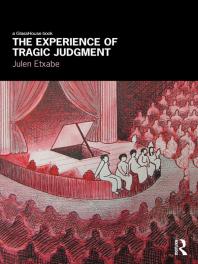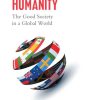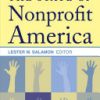(Ebook PDF) The Experience of Tragic Judgment 1st Edition by Julen Etxabe isbn 9781135130916 1135130914 full chapters
$50.00 Original price was: $50.00.$35.00Current price is: $35.00.
The Experience of Tragic Judgment 1st Edition Julen Etxabe Digital Instant Download
Author(s): Julen Etxabe
ISBN(s): 9781135130923, 1135130922
Edition: 1
File Details: PDF, 1.81 MB
Year: 2012
Language: english
(Ebook PDF) The Experience of Tragic Judgment 1st Edition by Julen Etxabe-Ebook PDF Instant Download/Delivery:9781135130916, 1135130914
Instant download Full Chapter of The Experience of Tragic Judgment 1st Edition after payment

Product details:
ISBN 10:1135130914
ISBN 13:9781135130916
Author: Julen Etxabe
Adjudication between conflicting normative universes that do not share the same vocabulary, standards of rationality, and moral commitments cannot be resolved by recourse to traditional principles. Such cases are always in a sense tragic. And what is called for, in our pluralistic and conflictual world is not to be found, as many would suppose, in an impersonal set of procedures with which all participants could be treated as having rationally agreed. The very idea of such a neutral system is an illusion. Rather, what is needed, Julen Etxabe argues in this book, is a heightened awareness of the difficulty of judgment. The Experience of Tragic Judgments draws upon Sophocles’ play Antigone in order to consider this difficulty and the virtues that attend its acknowledgment. Based on the transformative experience that the audience undergoes in engaging with this play what is proposed is a reconceptualization of judgment: not as it is generally thought to occur in a single isolated moment, like the falling of an axe, but rather as an experience that develops in and through space and time.
Table of Contents:
- 1 A window on the normative world
- 1.1 Nomos: a normative world
- 1.2 The construction of norms
- 1.3 Mapping the social trajectories
- 1.4 The pathos of judgment
- 1.5 Judgment in tragedy and law
- 2 Antigone, Part I: Beginnings
- 2.1 Antigone and Ismene at the palace gates (lines 1–99)
- 2.2 Parodos: first entrance of the Chorus (lines 100–55)
- 2.3 Creon, new King of Thebes: inaugural speech (lines 155–222)
- 2.4 The guard enters the palace (lines 223–331)
- 2.5 First stasimon: Ode on Man (lines 332–75)
- 2.6 Antigone and Creon: the clash of nomoi (lines 376–525)
- 3 Incommensurability and judgment
- 3.1 Berlin and the incommensurable clash of ends
- 3.2 Raz and the constitutive incommensurability of social practices
- 3.3 Wiggins: tragic dilemmas and forms of life
- 3.4 Lyotard’s differend and the incommensurability of judgment
- 3.5 Rancière’s disagreement and the staging of the conflict
- 3.6 Incommensurability,Antigone, and law
- 4 Antigone, Part II: Transitions
- 4.1 Ismene comes forward (lines 526–81)
- 4.2 Second stasimon: disaster returns again (lines 582–625)
- 4.3 Haemon: son and groom (lines 626–780)
- 4.4 Third stasimon: the power of Eros (lines 781–800)
- 4.5 Antigone’s farewell march (lines 801–943)
- 4.6 Fourth stasimon: besieged as others (944–987)
- 5 Acts of reading, acts of judgment
- 5.1 The challenge of Plato
- 5.2 The truth of tragedy: vindicating the tragic experience
- 5.3 The power of emotions: “education sentimentale”
- 5.4 A good judge or judging well?
- 5.5 Six spaces of judgment
- 5.5.1 Identification
- 5.5.2 Separation
- 5.5.3 Mediation
- 5.5.4 Bifurcation
- 5.5.5 Embodiment
- 5.5.6 Disembodiment
- 5.6 The tragic audience and the judge
- 6 Antigone, Part III: Realizations
- 6.1 Teiresias: seer and counselor (lines 988–1114)
- 6.2 Fifth stasimon: Dionysus, the Chorus Master (lines 1115–54)
- 6.3 Tragic news (lines 1155–256)
- 6.4 Final laments (lines 1257–353)
- 7 The temporalities of judgment: Antigone and law
- 7.1 The originality of Antigone
- 7.2 The genealogy of Antigone’s law
- 7.3 The law of the Antigone and the experiences of the audience
- 7.4 The narrative configuration of time: the temporalities of judgment
- 7.4.1 Immersion
- 7.4.2 Contention
- 7.4.3 Prospection
- 7.4.4 Retrospection
- 7.4.5 Closing
- 7.4.6 Reconstitution
- 7.5 The experience of judging tragic conflicts: hard cases, anew
People also search:
tragic experience
tragic experience meaning
the experience of trauma can be a precursor to
tragic life experiences
a tragic end assessment
Tags:
Experience,Tragic Judgment,Julen Etxabe


